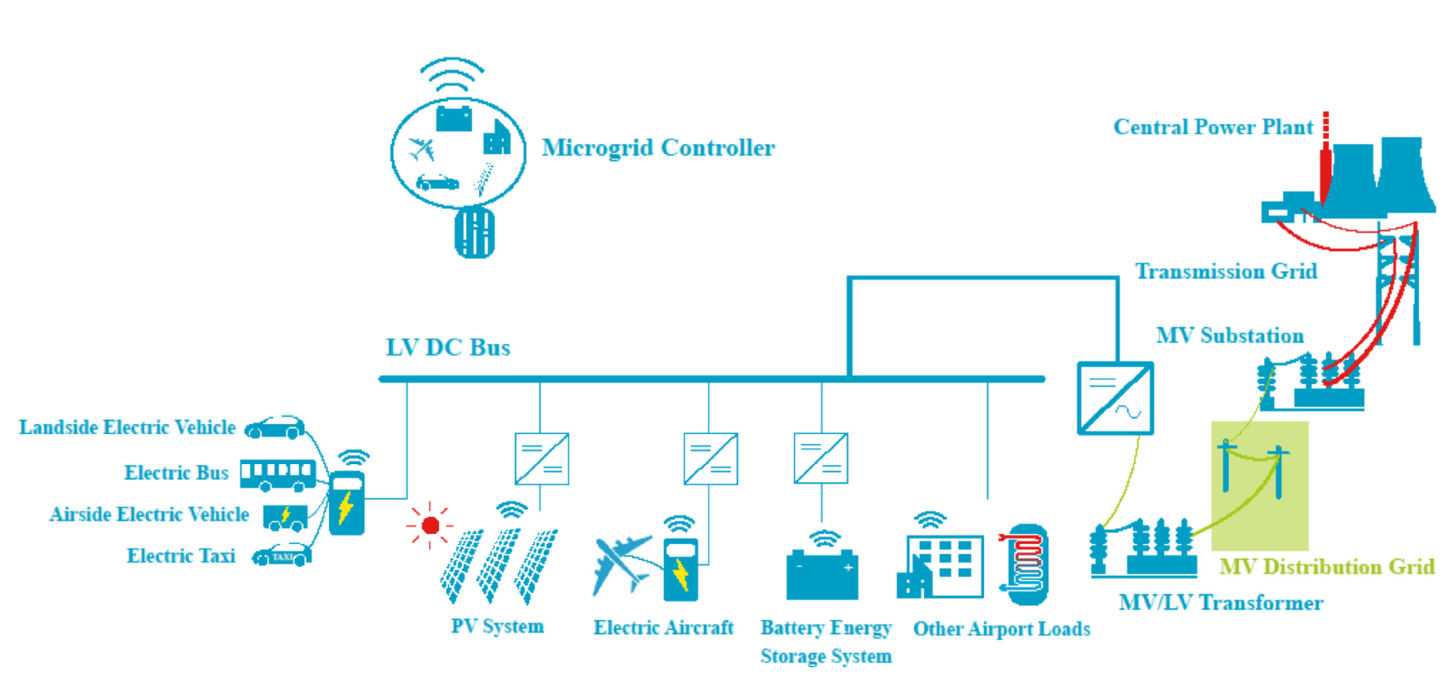Integrate and analyse electrified airside and landside mobility for future green airports

Project description
The urgent need to reduce greenhouse gas (GHG) emissions and the environmental benefits of a renewable-based economy trigger a worldwide shift towards more sustainable ways of living, travelling, producing, and consuming. In aviation’s contribution to climate neutrality, airports will play a major role. Sustainable energy production and use at both the airport’s airside and landside will help to achieve ambitions of the future Climate Neutral and Smart Cities mission under Horizon Europe.
In order to integrate electrified airside and landside mobility successfully to future airport grid, the following contributions will be developed under this project:
- Investigate grid impact of future electrified airside and landside mobility integration in airports;
- Collect and process data from Schiphol, SGO, KNMI, etc. to facilitate the airport energy demand modelling and know the distribution network configuration.
- Model the future change: the charging power demand of landside and airside EVs, the grid-integration of electric aircraft, the PV system, the battery storage system, the electrified heat storage system which use a combination of heat pump systems and heat batteries, and other future changes.
- Formulate various scenarios depending on the specific boundary conditions of an airport (geographical, infrastructural, etc.;).
- Evaluate the impact of electrified airport based on software simulation, focusing on transformer loading, voltage profile, transmission line loading, grid congestion.
- Develop a smart charging strategy for airside EVs to mitigate the grid impact, reduce operating costs and increase the use of local renewables;
- Figure out how to quantify the grid impact and how to increase the use of local renewables.
- Reduce the optimization error using real-time control and moving horizon control framework.
- Use suitable method to model the uncertainty of PV output, charging demand, load demand, grid fault, etc.
- Develop a smart charging strategy including all the costs (investment, maintenance, energy losses, secondary-life battery, etc.), revenues (ancillary service such as primary frequency regulation reserve).
- Develop a reconfigurable modular large battery pack and charging system for electric aircraft and analyse its effect on the battery lifetime and state of health;
- Design a reconfigurable modular battery system based on real-time system condition, in which each battery module can be connected in series, in parallel or bypassed via switch matrix (power electronics).
- Develop a battery management system which can realize capacity maximization, stable output voltage, cell balancing, weak/faulty cell replacement, circulating current minimization.
- Study the steady-state and transient-state performance of the proposed BMS.
- Analyse the effect of the modular charging system on the battery lifetime and state of health.
This PhD project is part of the TULIPS project which aims at zero emissions airports by 2030 and climate-neutral aviation by 2050.
PhD candidate:
Yawen Liang: Y.Liang-3@tudelft.nl
Co-promoter:
Gautham Ram Chandra Mouli: G.R.ChandraMouli@tudelft.nl
Promotor:
Pavol Bauer: P.Bauer@tudelft.nl